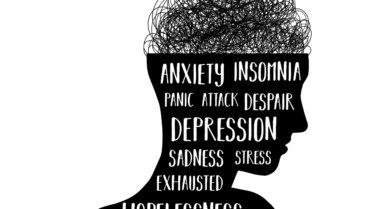In a world that often glorifies independence and self-sufficiency, it can be easy to believe that asking for help is a sign of weakness. However, relying on others in times of need takes an incredible amount of courage and strength. It requires vulnerability, trust, and the willingness to admit that we can’t do everything alone.
In fact, leaning on our support systems in difficult times can be vital for both our mental and physical health. So let’s debunk the myth that needing help is weak – instead, let’s celebrate the bravery it takes to reach out when we’re struggling.
Why we should rely on others
In times of need, it is natural to want to rely on others for support. Whether we are facing a personal crisis or struggling with a difficult situation, turning to others can help us feel less alone and more connected.
There are many reasons why relying on others is not a sign of weakness, but rather, courage. First, admitting that we need help takes strength. It can be hard to reach out for assistance, but doing so shows that we are willing to face our challenges and seek support. Second, trusting others shows faith in humanity.
When we rely on others, we are acknowledging that there are good people in the world who can provide us with guidance and comfort. Seeking help from others demonstrates our ability to be vulnerable. Being vulnerable allows us to connect with others on a deeper level and creates opportunities for intimacy and growth.
So next time you find yourself in need of support, don’t be afraid to reach out to those around you. Chances are, they will be more than happy to help you through whatever challenges you’re facing.
The Benefits of Connecting with Loved Ones During Difficult Times
There are countless benefits to relying on others during difficult times. For one, it can help take the pressure off of you emotionally. Dealing with a difficult situation is hard enough without having to shoulder all of the stress and anxiety yourself. When you have supportive loved ones to lean on, they can help share the load and make the situation feel more manageable.
In addition, connecting with loved ones during tough times can actually help improve your physical health. Studies have shown that social support can boost immunity and reduce stress levels, both of which are beneficial for your overall health. So if you’re struggling, don’t be afraid to reach out to your friends and family members for support. It could be just what you need to get through this tough time.
Self-Care: How to Recharge the Mind, Body and Spirit after Stressful Situations
It’s not uncommon to feel drained after a stressful situation. Your mind and body have been working hard to process the stress and keep you safe, and now it’s time to recharge. Here are some tips for how to care for yourself after a stressful event:
- Give yourself time to rest and recover. Just like your body needs time to recover from a physical injury, your mind and body need time to recover from psychological stress. Allow yourself some extra time to sleep, relax, and eat healthy meals.
- Talk about what happened with someone you trust. It can be helpful to talk about your experience with someone who will understand and support you. Talking about the event can help you make sense of it and start to heal.
- Do something that makes you feel good. Taking care of yourself also means doing things that make you feel happy and fulfilled. Make time for activities that bring you joy, whether that’s reading, spending time outdoors, or being with friends and family.
Healthy Coping Strategies for Self-Acceptance and Growth
It is perfectly normal to feel overwhelmed and need help from others when going through tough times. Asking for support is a sign of strength, not weakness.
There are many healthy coping strategies that can help you accept yourself and grow from difficult experiences. Some helpful techniques include journaling, talking to a trusted friend or therapist, practicing self-care, and exploring your spirituality.
It is important to find what works best for you and to be patient with yourself. Remember that you are not alone in this journey and that there is always hope for healing and growth.
- Journaling
Journaling is a great way to get your thoughts and feelings out of your head and onto the page. Writing down your experiences can help you gain clarity and perspective. Even if you don’t want to write about your emotions, it can be helpful to keep track of goals and milestones that you reach along the way to self-acceptance.
- Talk to a Trusted Friend or Therapist
Talking to someone you trust can help you process what is going on inside of yourself. This can be a friend or family member, or it could be a mental health professional like a therapist or psychologist who specializes in helping people with their self-esteem issues and growth.
- Practice Self-care
Taking care of yourself physically, mentally, and emotionally is important when learning to accept yourself just the way you are. This includes getting regular exercise, eating nutritious food, getting enough sleep, and taking time for things that bring joy into your life such as hobbies and leisure activities.
- Explore Your Spirituality
Exploring your spirituality can be an effective tool for self-acceptance and growth by providing meaning and hope during difficult times . This could be practicing meditation and mindfulness, attending religious services, or reading spiritual books. Everyone has their own beliefs and it is important to follow the path that resonates most with you.
How to Balance Your Needs with Those of Others Around You
In any close relationship, it’s important to be able to rely on others and to feel like your needs will be heard and respected. However, this can sometimes feel like a tightrope act, as you also need to balance your own needs with those of the people around you. Here are some tips for how to strike this balance:
- Communicate openly and honestly with the people around you. When you’re feeling overwhelmed or like your needs are not being met, tell them what you’re thinking and feeling. This way, they can understand where you’re coming from and maybe offer some help or support.
- Be aware of your own needs and make sure to take care of yourself first and foremost. If you’re constantly putting others before yourself, you’ll eventually end up resentful and unhappy. Make sure to schedule in some time for yourself every day, even if it’s just a few minutes to relax or do something you enjoy.
- Try to empathize with the people around you and understand their needs as well. If you can see things from their perspective, it will be easier to find a compromise that works for both of you.
- Don’t be afraid to ask for help when you need it! Asking for help does not mean that you are weak or incapable – it just means that you recognize that we all need assistance at times. So don’t hesitate to reach out when things get tough, because chances are there are people around you who are more than willing and able to help.
By following these tips, you can learn how to balance your own needs with those of the people around you. Remember to be open and honest about what you need, stay aware of your own needs, empathize with others, and don’t be afraid to ask for help. Doing so will make sure everyone’s needs are taken into consideration and create a more balanced environment.
The Importance of Compassionate Communication
It takes a lot of courage to asked to be helped, whether we admit it or not. Asking for help can feel like a sign of weakness, but it’s actually a sign of strength. It shows that we are willing to rely on others in times of need and that we are capable of being vulnerable.
Compassionate communication is crucial in these situations. It involves active listening, empathy, and respect. We need to be able to put ourselves in someone else’s shoes and understand their experience. Only then can we offer the support that they need.
Recognizing the Strength and Resiliency it Takes to Ask for Help
It takes a lot of courage to ask for help. It’s a sign of strength and resilience, not weakness. Asking for help shows that you’re willing to admit that you need assistance and that you’re not afraid to seek it out. It takes a great deal of strength and fortitude to reach out to others when you’re in need, and it’s something that should be applauded, not discouraged.
When we see someone asking for help, we often see it as a sign of weakness. We think that they must be unable to cope or handle the situation on their own. But this isn’t always the case. Sometimes, asking for help is simply a sign of courage. It means that the person is willing to admit that they need assistance and are brave enough to seek it out.
Asking for help can be difficult, but it’s important to remember that doing so is not a sign of weakness. Rather, it takes a great deal of strength and resilience to ask for assistance when you need it. So next time you see someone asking for help, don’t view it as a sign of weakness. Instead, see it as a sign of courage and strength.





Add Comment